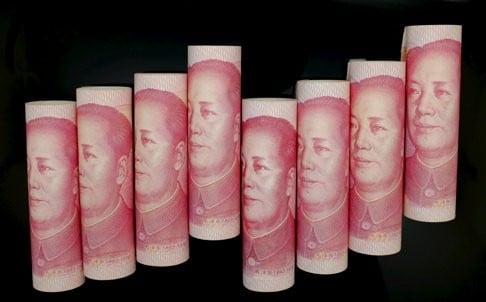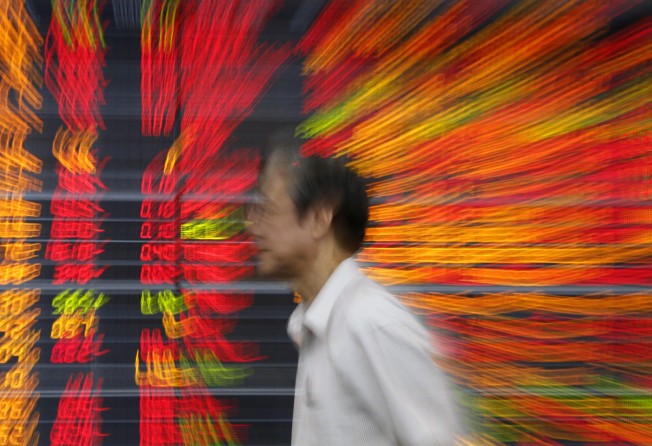
The bear facts: what can we expect from the stock market in China this week

Stock markets are bracing for another volatile week on worries over further devaluation of the yuan, a weakening economy and share sales of major shareholders after the end of a ban.
“So far China in 2016 appears to be everyone’s worst nightmare come true,” Haitong Research said in a note, adding that it believes both the yuan and mainland A-shares will go further down after the Shanghai stock market fell 10 per cent last week and the offshore yuan shed 1.75 per cent.
“Given the weak economic outlook, depreciation pressure and lower corporate profitability, upside for Chinese markets looks limited, with much of the volatility caused by government intervention rather than fundamentals,” Haitong Research said.
Echoing the bearish outlook, Christopher Cheung Wah-fung, legislator for brokers, said: “The stock markets in both Hong Kong and mainland China are likely to continue to be volatile this week, more likely to go down rather than up...Beijing may press the ‘national team’ into action but that is unlikely to help as sentiment is bearish.”
Brokers said hectic buying by the ‘national team’ on Friday was why Shanghai and Shenzhen markets staged a V-shaped rebound. The market was also helped somewhat after the China Securities Regulatory Commission scrapped the circuit breaker following the rout.
“The removal of circuit breaker will help stabilise the market. However, the weak mainland economy and [expectations of a hike in] US interest rate would continue to drag the market down,” said Jeffrey Chan Lap-tak, founding partner of Oriental Patron Financial.
“The national team will appear again this week if stocks plunge but such interventions would only distort the market further.”
The Shanghai Composite Index fell 10 per cent last week, wiping off last year’s 9 per cent gain. Hong Kong stocks also dropped 6 per cent in the first week. The sell-off spread to other markets from the US to Japan.
What market players are particularly watching this week is the end of the share sale ban by major shareholders and senior executives. They will be allowed to sell shares from Monday as the six-month ban expired on Friday. It was put in place to stabilise the market when it went into a free fall last year.
The CSRC on Thursday announced new rules that cap selling by a major shareholder at 1 per cent or less of the company’s total shares every three months. They will also need to announce their sale plan 15 days ahead of the transaction.

Cheung said the new CSRC rule would mean major shareholder cannot rush in selling shares but added “selling pressures will continue to haunt the markets over next few months”.
Offshore yuan traded by international investors weakened by 1.75 per cent last week and dropped to its record low on Thursday. Jasper Lo, director of Tung Shing Futures, said the yuan may bounce back slightly this week after last week’s sharp fall but added the currency may weaken by 10 per cent this year.
China’s foreign exchange reserves fell a record US$107.9 billion in December, the 10th monthly fall last year. For 2015 as a whole, reserves fell by US$512.7 billion to US$3.33 trillion.
“The yuan was oversold last week so it may bounce back. However, investors should not bet on the yuan to go up too far as it is expected to weaken this year to aid mainland exports and economic growth,” Lo said.
“Yuan’s fall is not just a China problem but would affect other currencies too. It is a global problem so it is possible for the central banks worldwide to work together to prevent the yuan from falling too rapidly.”